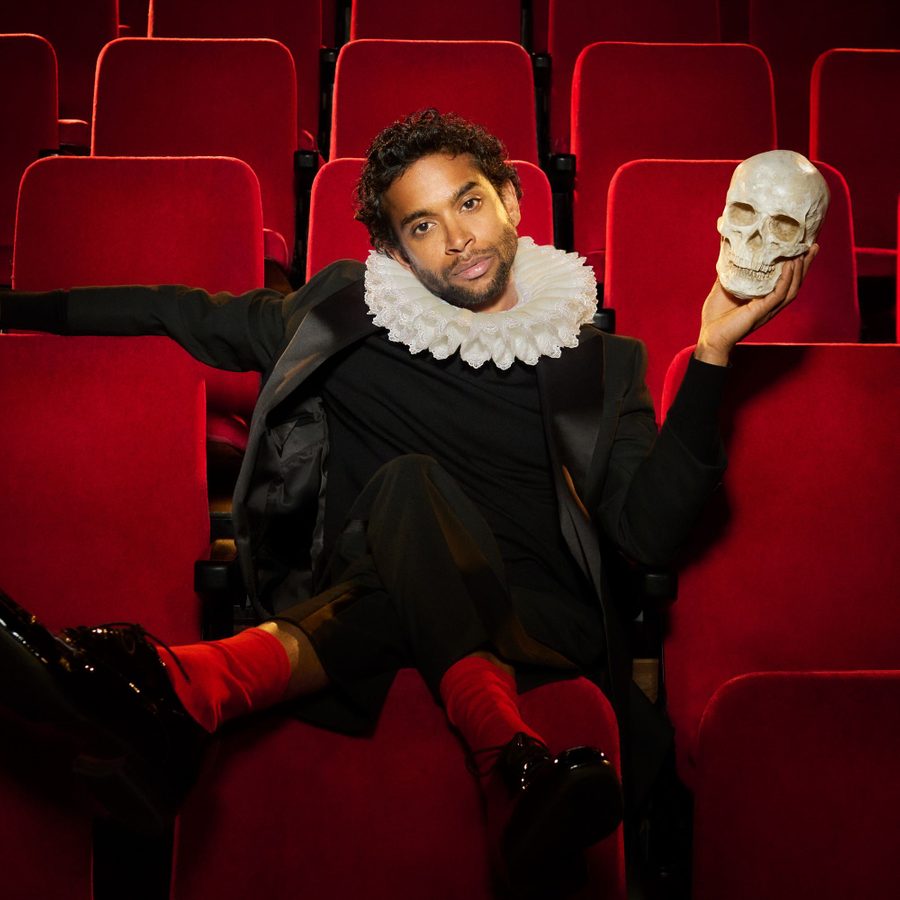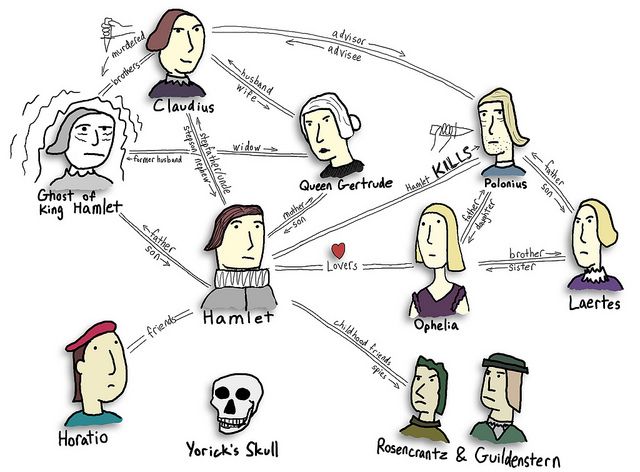Hamlet NT

On Thursday the 6th of November 2025, we were invited to a workshop at The National Theatre to watch Robert Hastie's modern adaptation of Shakespeare's 'Hamlet'. The play is an amalgamation of the three versions of Hamlet as well as having lines from other Shakespearian plays mixed in here and there. It was cut down from four hours to around two.
Dr Sophie Duncan:
The original Hamlet would have been performed in a thrust staging with a trap door centre stage and the audience and actors would be lit by natural lighting. This creates a more shared experience for the audience which is reinforced by the soliloquies by Hamlet. I felt very included. However, in the Lyttleton Theatre it was a proscenium arch stage.
At the time of the first performance of Hamlet, England's security system was very much based on spies. Spying and theatre go hand in hand with themes of 'deception, manipulation and simulation'. Within the play there is a lot of secrecy and misinformation. For example, Claudius manipulated Laertes into murdering Hamlet with an alternative goal in mind; when Hamlet is spying on the burial of Ophelia, Polonius and Claudius spying on Hamlets conversation with Ophelia...the list goes on!
Mortality bills - historical public health documents, most notably from London, that recorded weekly death counts by parish and cause. Often the cause of death could be written as love or grief as it was believed that at the time these were very real causes of death.
Shakespeare at the time worked for the Lord Chamberlain's Men and was also a shareholder in the company and became very rich off of it. Bought the second largest house in Stratford and applied for a coat of arms! Before the play was performed Shakespeare's only son Hamnet died at the age of 11 and when the play was in writing Shakespeare's Dad died. This loss that was running through his life at the time affected his writing and it explains the theme of grief. The beginning scene the royal family is dressed in

Characters:
- Hamlet - Hiran Abeysekera
- Claudius - Alistair Petrie
- King Hamlet - Ryan Ellsworth. At the time everyone believed that ghosts were real. They often represented guilt or madness, spirits left behind for revenge. They reveal hidden truths to characters symbolising a higher power delivering justice or the temptation of the devil (which was Hamlet's worry)
- Queen Gertrude - Ayesha Dharker
- Polonius - Geoffrey Streatfield
- Laertes - Tom Glenister
- Horatio - Tessa Wong
- Rosencrantz - Hari Mackinnon
- Guildenstern - Joe Bolland
- Ophelia - Francesca Mills. Ophelia shows her decent into madness and how madness is closely related with death, love and grief.
- Player - Siobhan Redmond